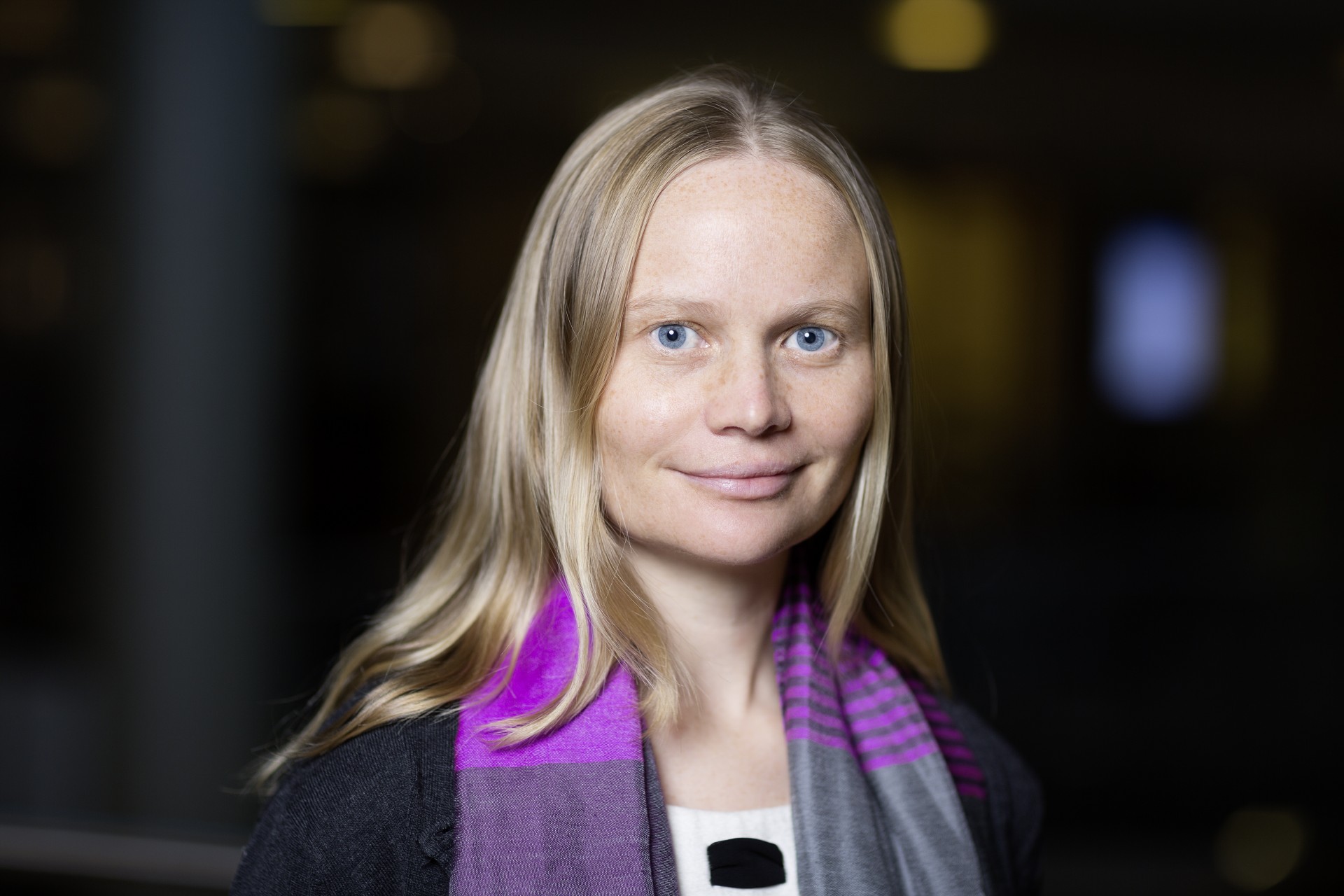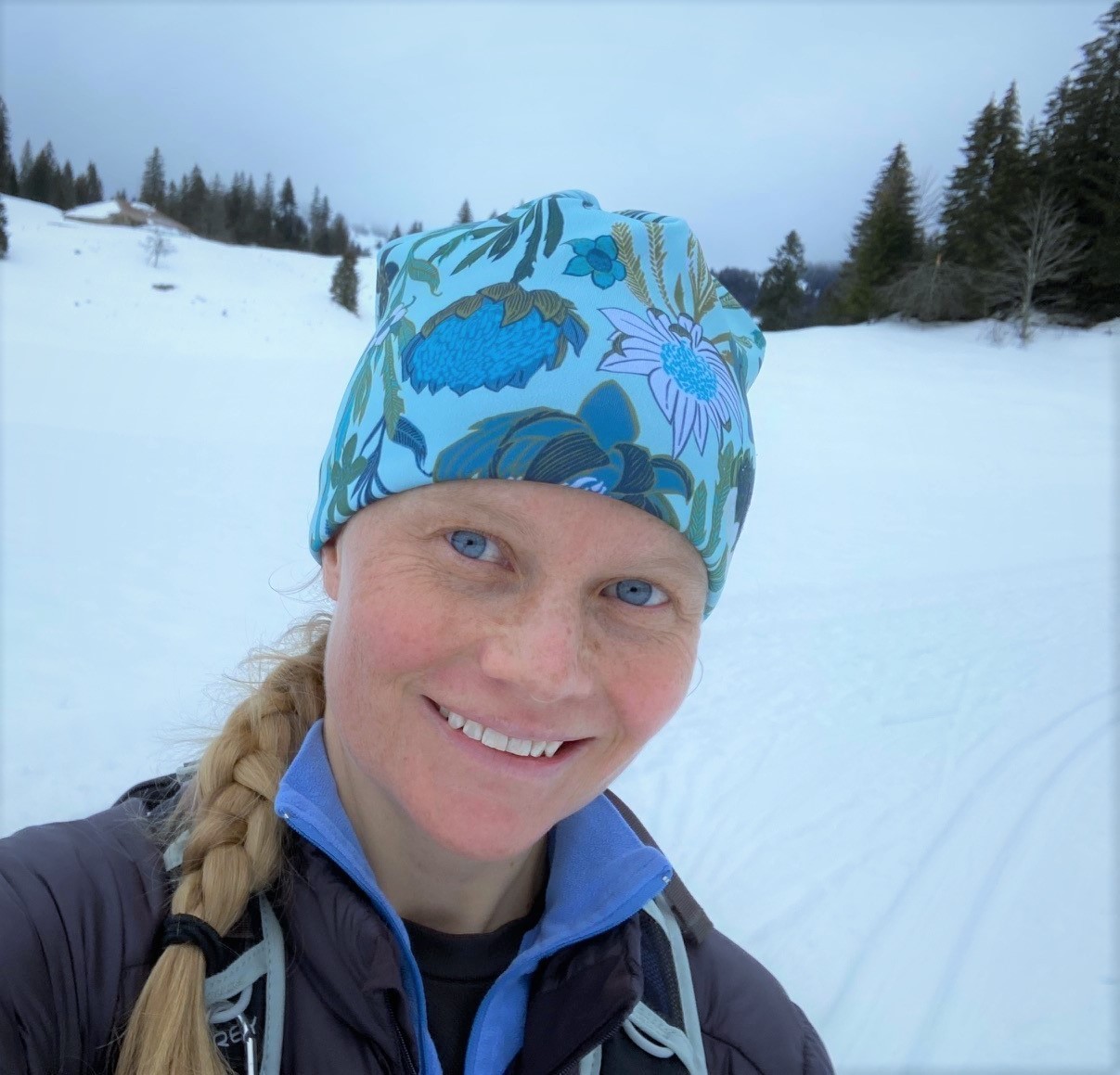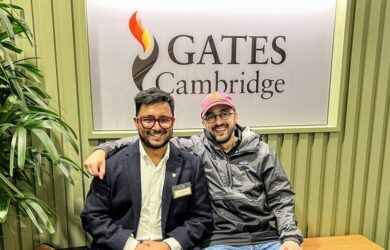
Stella Nordhagen talks about her role at GAIN in tackling all the pressures facing our food systems today
We need to talk about how we balance the benefits of good connectivity and specialisation against the need for resilience against uncertainty, how we continue to embrace the benefits of globalisation while being resilient to global shocks
Stella Nordhagen
The last few years have seen huge turbulence globally and that has affected every part of our lives, including food and agriculture.
In some respects, that turbulence has brought opportunities, says Stella Nordhagen, a Gates Cambridge Scholar who is a Research Lead at the Global Alliance for Improved Nutrition.
Covid, for instance, disrupted global food chains, but Stella says it also showed that they were pretty resilient. “We thought it would be a bigger problem than it was. It showed that it was pretty resilient which was remarkable. It also made people think about the complexity of the food system, something that is normally taken for granted,” she says.
Similarly, climate change is forcing people to appreciate the importance of the food system. It faces huge challenges and there is much uncertainty and urgency across the food chain when it comes to addressing them, says Stella, although there still appears to be a lack of political will to address them.
The surge in conflicts around the world is another global challenge that is challenging food supply chains. For instance, the disruption of the fertiliser chain as a result of Russia’s invasion of Ukraine had a particularly big impact in Africa and presented price challenges. However, Stella says ‘a silver lining’ has been that it has reminded people how interconnected and interdependent the world is and how important it is to join together to mitigate the risks, even if the political will may not be sufficient to find solutions.
“We need a global conversation on agriculture and food,” says Stella, who did her PhD in Land Economy and her MPhil in Environmental Policy [2008]. “We need to talk about how we balance the benefits of good connectivity and specialisation against the need for resilience against uncertainty, how we continue to embrace the benefits of globalisation while being resilient to global shocks,” she states.
Food and the environment
Stella moved to Geneva to work for GAIN over five years ago. GAIN was founded by the UN in 2002 and aims to tackle malnutrition through building alliances across different sectors and with different actors, including policymakers, NGOs and private sector representatives who play such a big role in food preparation and delivery.
Stella’s work has remained similar over last five years, although she has been promoted since the pandemic and has taken on additional projects. Her focus now is on improving nutrition in lower and middle income countries [LMICs], particularly in sub-Saharan Africa and South Asia through looking at their food systems, production issues and pricing and at how people choose what they eat.
 Recently, Stella has started doing work on connecting nutrition to environmental sustainability, looking at how a balance can be achieved between what is good for the environment and health with the needs of economic development. In a lot of LMICs the effects of climate change on agriculture and livestock are already being felt in terms of food production being less predictable due to unexpected disasters and droughts, all of which pushes up prices and lowers the availability of some products. This has big implications for what people can eat, usually pushing them towards lower quality food or to eating less food generally.
Recently, Stella has started doing work on connecting nutrition to environmental sustainability, looking at how a balance can be achieved between what is good for the environment and health with the needs of economic development. In a lot of LMICs the effects of climate change on agriculture and livestock are already being felt in terms of food production being less predictable due to unexpected disasters and droughts, all of which pushes up prices and lowers the availability of some products. This has big implications for what people can eat, usually pushing them towards lower quality food or to eating less food generally.
Stella’s role also involves her looking at the impact that food systems have on driving climate change as one of the world’s biggest greenhouse gas sources. She researches how that impact can be reduced in equitable ways, given that LMICs don’t bear the brunt of the responsibility for climate change. “We are looking at what the trade-offs are between mitigating climate change and increasing people’s incomes and future markets,” she says.
Another issue is the changing global market in food and how that has impacted producing countries’ own diets, for instance, in rural areas in West Africa plants such as millet and sorghum used to be staple foodstuffs and were full of micronutrients. Nowadays, due to globalisation and changing demand from urban areas, there is more demand for crops such as rice and corn/maize which may be vulnerable to climate shocks and result in less diversity in crops grown, including those that are more resistant to shocks.
Stella says there is policy interest in the impact of environmental change on food, but from the farmers’ perspective, money is also very important. “If the market is more willing to pay for maize or rice, that is probably what they will grow,” she says. “And what people want to eat is not necessarily the most nutritious food. Convenience matters. Some people are attracted to food that fits with more modern lifestyles and affluence, more Westernised diets with more refined sugars, more junk food and more meat. We have to look at both the supply and demand side of the issue.”
The importance of good data
Stella is also working to make data on food and agriculture more available at a global level through the Food Systems Dashboard. A lot of the data that exists, she says, is scattered across different providers – such as different parts of the UN. Her team is trying to put it in one place so it is more easily accessible so better, more evidence-based decisions can be made about policies and development programmes.
Another data-based initiative she is involved in – the Food Systems Countdown Initiative – involves monitoring progress on improved food systems over time across different sectors, including health and agriculture. The aim is to see how countries are doing across a set of holistic sustainable development goals such as resilience, environment and people’s livelihoods.
Again the aim is to bring everything together and ensure decisions are taken based on the evidence of what works. “The Sustainable Development Goals are a good starting point for thinking holistically about development challenges and how we move forward on all of them at once, but we also need a more specific lens on how this manifests itself in the food system” says Stella.
She sums up her job as saying it falls into two different buckets. One is a focus on global research on agriculture and food aimed at policymakers and donors related to programmes that work on the ground. The second is more hands on and grassroots and involves the implementation of development programmes in 12 countries in Africa and Asia.
Stella supports these by providing evidence of best practice when it comes to designing the programmes as well as advising on research studies that help them to hone their methods and approach. For instance, she has been working on a food safety project in traditional open air markets in Africa. “The contamination risk can be great due to lack of refrigeration, little water, exposure to sun and dust and the presence of animals nearby,” she says. The project has worked with vendors and shoppers to educate them about hygiene and food safety and to understand the challenges they face in order to work out possible solutions.
Cambridge
Stella’s interest in the food system was what prompted her PhD at Cambridge where she studied farmers’ motivation for choosing to farm diverse crops and how climate change is driving this.
Having finished her PhD she wanted to do something more practical so she moved to Burkina Faso and started working with the NGO Helen Keller International which aims to improve agricultural techniques in order to improve nutrition. She has also worked in Senegal on monitoring and evaluating the impact on nutrition of a diverse range of health, education and agricultural programmes in different African countries.
Stella says her training at Cambridge in doing rigorous literature reviews and using appropriate methodologies for particular settings was good preparation for her job at GAIN and its holistic focus on all the different perspectives that drive the development of a more sustainable approach to food.












